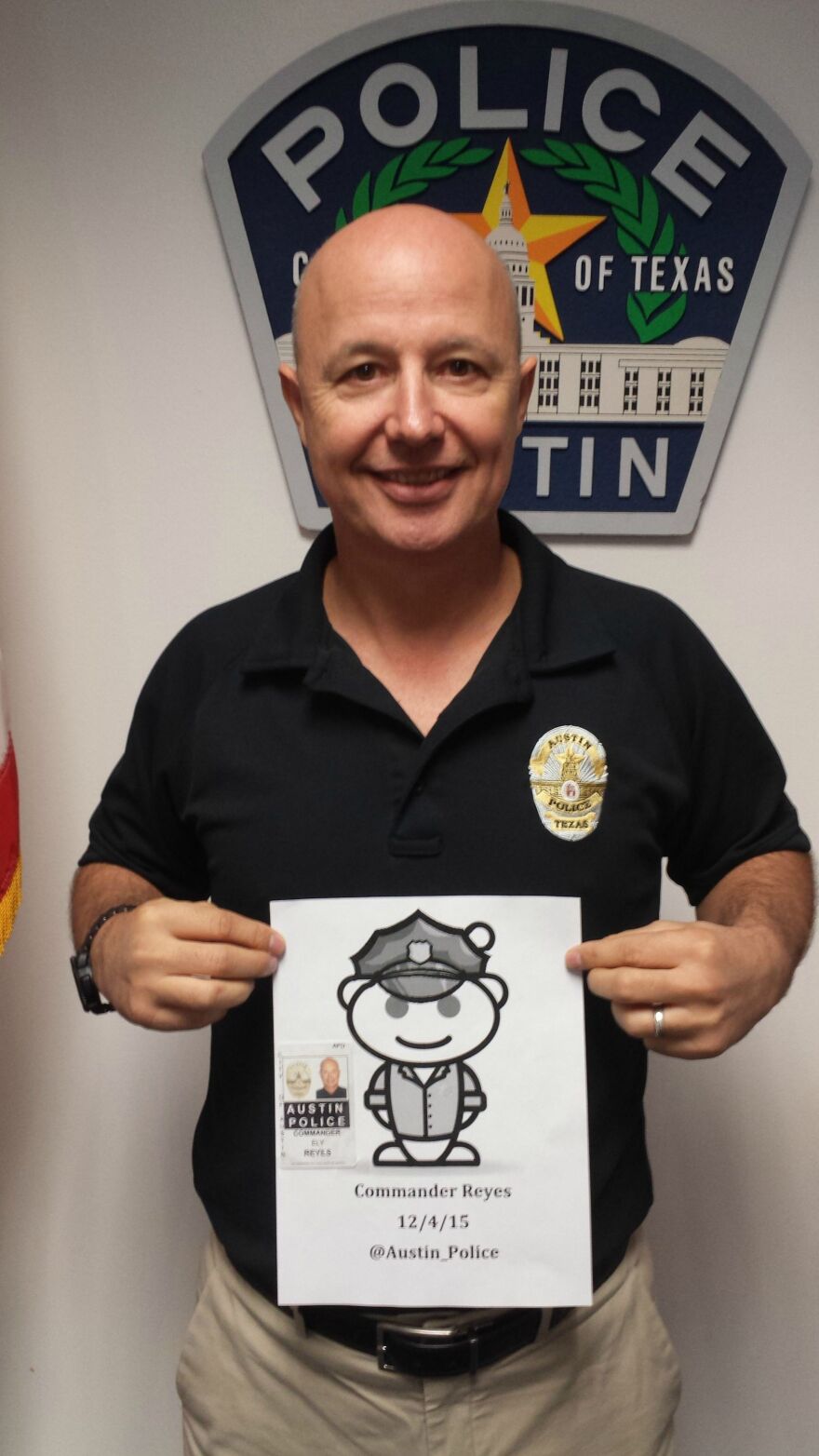The Austin Police Department held an AMA (short for Ask Me Anything; it's a Q&A forum) on reddit Friday morning to take questions about officer body cameras. Technology Commander Ely Reyes fielded the questions submitted on the forum, many of which focused on who'd be able to access footage, and how. Redditors also wanted to know more about how the footage would be stored, and how the department planned to insure that officers turned cameras on and off at appropriate times.

Below are just a few of the answers Reyes gave during the two-hour Q&A.
1. Anyone will be able to request footage – Well, sort of. Footage will be subject to open records requests, but requestors must have exact details of the footage they’re requesting, along with the permission of anyone in the footage.
"Anyone can submit a public information request and will be required to provide 1) date & approx. time of recording, 2) specific location where recording occurred, 3) name of one or more persons known to be video subject. Law enforcement agencies cannot release videos made in private spaces or a recording of a misdemeanor not resulting in an arrest, without written authorization from the subject or from the person's authorized rep if deceased."
2. APD could consider using facial recognition in the future – Reyes couched his answer to user harlanyu’s question in the conditional and even included a Nathan Fillion gif for good measure.
"Interesting question, uh...that type of technology is not currently on our list of projects. However with the recent events occurring around our country, there may be the need for implementing these types of things in the future. Public safety is paramount and being able to identify and recognize potential threats in our community could be beneficial to us all."
3. Cameras will use 30-second, pre-event buffers – Reyes clarified that the pre-event buffer will use footage that’s cached 30-seconds prior to an officer hitting the record button in a response to user/moderator okayshure’s question and clarified in another response as well. Officers in patrol cars will have cameras that automatically turn on prior to exiting the car and other officers will have to manually activate the camera.
"Officers can turn the camera off at the conclusion of the incident or when all law enforcement action is completed… The end of the incident is when all prisoners have been transported and booked into jail or when all law enforcement action is concluded. An example would be waiting for a tow truck or a family member to pick someone up after a crash, etc. The camera will not be constantly recording however it will include a minimum 30-second pre-event buffer."
"The body camera will be required to turn on automatically when the officer opens the car door. For officers not in cars who need to take immediate action, they will be required to turn the camera on as soon as possible. The cameras will be equipped with a minimum 30-second pre-record feature."
4. APD has a “discipline matrix” – It’s not a thrash band, we checked. It’s a guideline for the department’s internal investigations. Reyes says it’ll be applicable to situations during which officers violate APD’s guidelines.
"We do have a discipline matrix that includes circumstances in which an officer turns off the camera when not permitted to do so. The discipline is fact specific based on the circumstances and could include indefinite suspension."
5. As many as 1,500 officers will have body cameras – In a response to SneakAtax’s query, Reyes said the department will outfit 500 officers a year using city money and will continue to seek grant dollars to supplement the program, after missing out on a Justice Department to supplement the program.
"We are phasing in the deployment with 500 cameras by the end of September 2016. Our plan is to equip 500 officers a year for the next 3 years. Every officer assigned to patrol, walking beat, parks and highway enforcement will be issued cameras first."
Police Chief Art Acevedo says the department plans to implement body-worn cameras starting in 2016. Downtown patrol officers will be the first to be equipped with the surveillance devices.



